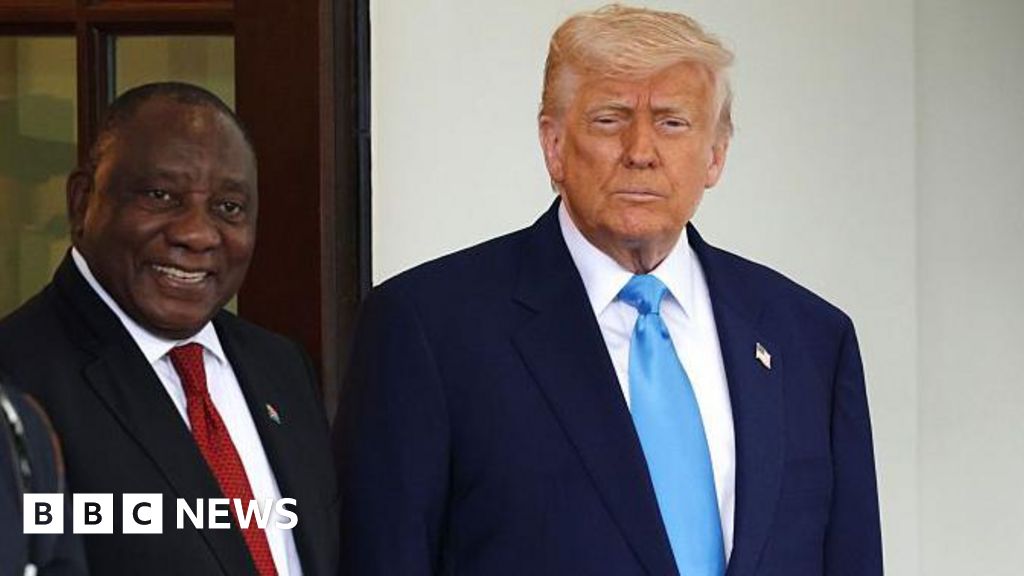South African products exported to the US will face a 30% tariff from 7 August, President Donald Trump has announced.
South Africa faces the highest rate in sub-Saharan Africa, reflecting Trump’s strained relationship with the government of President Cyril Ramaphosa.
Other African nations, including Nigeria, Ghana, Lesotho and Zimbabwe have been hit with a 15% tariff, which will also come into effect in seven days.
The decision is a huge blow to South Africa, as the US is its second-biggest trading partner.
Looking across the whole continent, including North Africa, exports from Algeria and Libya will now also incur a 30% tariff at the US border.
Tunisian goods are facing a 25% rate. Goods from Kenya and Ethiopia, on the other hand, will be charged at the lower 10% rate.
Tariffs are taxes charged on goods bought from other countries; typically, they are a percentage of a product’s value.
Trump argues that introducing tariffs will protect American businesses from foreign competition and also boost domestic manufacturing and jobs.
South Africa’s automobile, farming and textile sectors had enjoyed duty-free access to the US market under the African Growth and Opportunity Act (Agoa), which was enacted in 2000.
Trump’s announcement effectively spells the end of Agoa, even though it is officially up for review in September.
Ahead of Trump’s 1 August deadline, South Africa had been trying to agree a trade deal with the US, which included buying US liquefied natural gas, simplifying rules for US poultry imports and investing $3.3bn (£2.5bn) in US industries like mining, according to the Reuters news agency.
Reacting to the news of the 30% tariff, Ramaphosa said his administration would “continue negotiating with the US” and had “submitted a framework deal” to its US counterpart.
“In the meantime, government is finalising a package to support companies that are vulnerable to the reciprocal tariffs.”
The government also noted that “all applicable exceptions published in the previous US Executive Order are set to remain in force”.
These include copper, pharmaceuticals, semiconductors, some critical minerals, stainless steel scrap and energy products, according to the government.
US-South Africa relations have hit rock-bottom since Trump took office in January.
The US president has stopped all aid to South Africa, accusing it of discriminating against the white minority. South Africa has repeatedly denied this.
Ramaphosa held talks with Trump in May in a bid to mend relations but this failed to make any headway.
Earlier this week, Trump indicated he would “maybe send someone else” to the G20 Leaders Summit taking place later this year in Johannesburg.
“I’ve had a lot of problems with South Africa. They have some very bad policies,” he told reporters.
